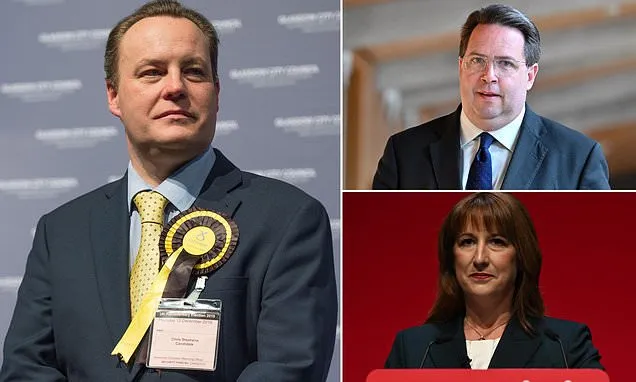Wealthy Scots could be forced to pay an annual tax for simply owning a home, under plans for a controversial new levy being considered by the SNP.
Delegates at the party's annual conference today voted to raise money for the government by introducing a 'wealth tax'.
Although no specific details were provided, the principle of the new levy is that the well-off would be taxed an amount each year based on the overall value of their assets - which could include savings, art, jewellery and antiques, as well as private pensions, land and property.
Unlike most current forms of taxation, a wealth tax would be applied to all assets owned by high-worth individuals, even if those assets are neither bought nor sold.
Whilst acknowledging that Holyrood does not have the legal powers to set up the new levy, the conference today voted for the Scottish Government to start discussions with HMRC on introducing a 'local wealth tax for Scotland'.
However the proposals immediately sparked a warning that, although the policy would most target the super-rich at first, the criteria could easily be changed - meaning more and more people becoming eligible to pay as the government sought to boost its coffers.
Scottish Conservative spokesman for finance and local government Craig Hoy said: 'The SNP's solution to everything seems to be higher taxes, so It's no surprise they should have backed this muddled and counter-productive idea.
'Their high-tax agenda is already holding back the opportunities for growth for Scottish businesses and damaging Scotland's economy, which is stagnating compared with other parts of the country.'
Former SNP MP Chris Stephens said that a wealth tax was necessary to address inequality.
'This ill-thought out additional tax would only increase the gap with other parts of the UK, drive away investors, deter skilled workers, cost jobs and end up hammering ordinary Scots.'
The SNP has repeatedly introduced measures to ensure that households deemed to be well-off are taxed more highly in Scotland than elsewhere in the UK.
Changes to income tax brought in by the Scottish Government mean that anyone in Scotland earning more than £30,300 a year currently pays more than they would if they lived in England.
Meanwhile anyone buying a home in Scotland pays more tax than they would in England on residential properties worth more than £330,000.
And further changes introduced this year mean anyone buying a second home in Scotland must also pay an additional tax worth an extra 8 per cent of the property price.
Although a blanket wealth tax has never been tried anywhere in the UK, the idea has been hotly discussed in recent months after senior figures in the UK Labour party called on Chancellor Rachel Reeves to introduce the new levy in November's Budget to help plug a multi-billion pound hole in the public finances.
Former Labour leader Neil, Lord Kinnock, argued that an annual tax of one or two per cent on the assets of the wealthiest in society - which he suggested should mean those with assets worth over £10million - would raise between £12billion and £24 billion.
Supporters say that a tax which targets accumulated, inherited or invested wealth would both raise significant revenue and tackle inequality.
SNP delegates voted to raise money for the government by introducing a 'wealth tax'
Former Labour leader Neil, Lord Kinnock, has similarly supported suggestions of an annual tax of one or two per cent on the assets of the wealthiest in society
Exact details of how a wealth tax would work have not been spelled out, but would likely be based on a calculation of an individual, household or business's total net wealth rather than their income, which would include the total market value of assets such as property, savings, investments, and other forms of personal or business wealth after subtracting liabilities such as debts.
However critics argue that it would be difficult to agree what value of assets would be needed to define an individual as 'wealthy'.
They also point out that it would be hard to assess the exact taxable value of any individual's assets, given the variable nature of prices, particularly house prices.
Another key argument put forward by opponents of the wealth tax is that introducing it would simply encourage the richest in society to leave the country.
At the SNP conference, former MP Chris Stephens said that a wealth tax was necessary to address inequality.
He claimed that the wealthiest two per cent of people in Scotland own more wealth than 50 per cent of the population combined.
And he told delegates that imposing a 'modest' two per cent wealth tax on assets over £10 million would raise £492million from just the country's ten richest families.
'That would be enough,' he said, 'to pay for 12,000 new nurses, 11,000 new teachers, or to double the Scottish child payment and lift more than 30,000 children out of poverty.'
Party members then voted by a clear majority in favour of a resolution entitled 'Maximising revenue for Scotland.'
It asked delegates to recognise that 'Scotland is facing a cost-of-living crisis and huge pressure on public services due to the failure of the UK Treasury, despite the efforts of the Scottish Government to mitigate the impact of this crisis.'
And it added: 'Conference therefore urges the Scottish Government...to begin discussions with HMRC on a local wealth tax in Scotland.'
